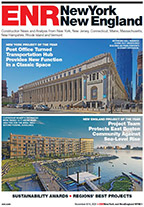 Angelle Bergeron Barb Kucera, editor of www.workdayminnesota.org and Howard Kling, director of labor education at University of Minnesota, work to organize teams to get the real story about New Orleans. |
The American public will not soon forget the devastation wrought by Hurricane Katrina in August 2005, nor the ensuing chaos that revealed the greater implications of everything that is broken in our society. At least, it won't forget if the ILCA has anything to do with it.
More than 100 journalists � print, photo, video and audio � gathered in New Orleans October 18-20 for the International Labor Communicators Association. In addition to the usual training workshops, plenary sessions and after-hours fun that are part and parcel of most conventions, the event included something that is sure to rekindle the enthusiasm of the journalists and their audiences. On Friday, October 19, the group divided into teams to go into the city, interview New Orleanians and get the first-hand story about what happened after Katrina and what is still broken, two years later. By the end of the weekend ILCA conference attendees had created a living narrative of conditions in New Orleans and fulfilled a mission organizer Howard Kling dreamed up months ago. "We are an organization that is dedicated to the well being of working people. The role we play is we tell stories," Kling says. "If we didn't lend our voices to the people of New Orleans and try to find out the real stories with working class people, shame on us. As modest as it may be, as little as we can do, as much as we can do...we needed to go."
 Angelle Bergeron Kling takes a break from a video shoot to relax with Nicholas Felton, Jr., president New Orleans Fire fighters Local 632, AFL-CIO in front of flood-damaged firehouse No. 21. |
The teams specifically targeted the plight of some local unions, but the scope was intended to be broader and encompassed labor and human rights issues beyond the realm of organized labor. Teams visited with fire fighters, teachers, longshoremen, carpenters, musicians unions, and more, and they also covered the local health, transportation and public housing situations.
It is Kling's hope that the attendees will go back to their respective cities and towns to tell THE story, not just New Orleans's story. "We do understand that it was not just an accident, just the hurricane tragedy, but there are other huge issues," Kling says.
Kling sits on the national executive council of ILCA, and he is also director of labor education service at the University of Minnesota. "There is a connection for me and others coming from Minnesota. At the beginning of the Mississippi and at the end of the Mississippi, we have a disaster that has somewhat the same cause," he says, referring to the collapse of the I-35W Bridge. "That is the refusal to invest in people, infrastructure, communities, education and all that, even refusal to invest in safe bridges and safe roads. In Minnesota, where we probably inspect bridges more than other places, we still had a disaster because we didn't spend money on it for the past 20 years. I think there is a story to be told right up and down t he center of our country, from north to south in the heart of our country. It's a huge issue of priorities."
To further address the issue of failing infrastructure, Kling and others at the University of Minnesota are organizing a conference for March or April, 2008. "It will be after the snow melts a little," Kling says.


Post a comment to this article
Report Abusive Comment